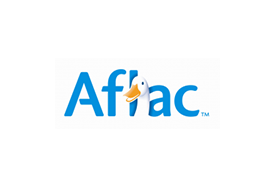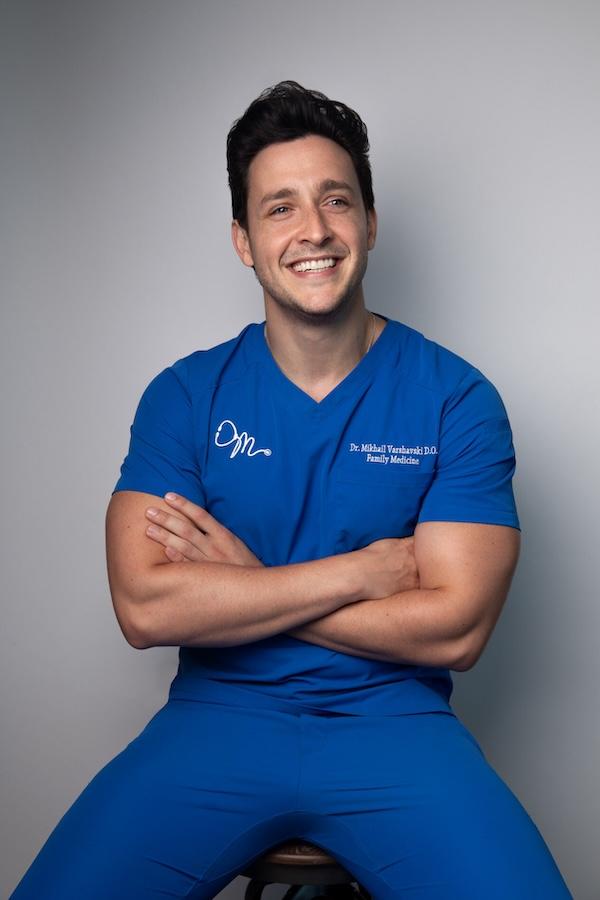Published 21 hours ago
Submitted by Aflac Japan Inc.
Originally published on Aflac Newsroom
COLUMBUS, GA, August 23, 2024 /CSRwire/ — When it comes to health care, there are some simple things young people may miss: making and keeping appointments with their primary care physician, and relying too much on urgent care and emergency rooms for primary care, according to Mike Varshavsky, MD, whose second annual survey backs this up. Aflac Wellness Matters Survey,1 Aflac, a leading U.S. provider of supplemental health insurance, recently announced
Dr. Mike Varshavsky, a board-certified family medicine physician, host of The Checkup Podcast with over 12 million YouTube subscribers, and named People magazine’s Sexiest Living Doctor, reveals startling statistics from Aflac’s Wellness Matters survey and challenges young Americans to advocate for their own health and wellness while gently encouraging their friends and family to do the same.
“Aflac’s findings are consistent with what I see every day through my patients as a specialist, especially when it comes to younger people,” Varshavsky explained. “Looking good, taking supplements and joining the latest health fads doesn’t guarantee good health. Younger people need to take a more proactive and holistic approach to managing their health, including regular visits with their doctor for recommended tests, check-ups and preventive care.”
Health mistakes young people make
Ironically, the survey found that young Americans are highly focused on and concerned about their physical and mental health — more so than social media reputations, career advancement, or politics. Yet, they often neglect taking care of their health. In fact, despite being quite concerned about their physical and mental health and checkups, 84% of millennials and 81% of Gen Zers have postponed a checkup or important exam beyond the recommended time. Many millennials also admit to completely avoiding essential medical checkups, such as:
- Pap smear: 34% of women overall (40% of millennials).
- STD testing: 23% overall (32% among millennials).
- Full body skin cancer screening: 27% overall (31% among millennials).
- Blood tests: 32% overall (39% among millennials).
The survey found that the majority of young people — 70% of Gen Z and 66% of millennials — primarily use urgent care or emergency rooms to manage their health rather than building a relationship with a doctor. Additionally, one in five Gen Z and millennials have put off seeing a doctor despite fearing something is wrong (higher than 13% of Gen X and 11% of baby boomers), suggesting that young people may not be listening to their own intuition when they feel “off.”
“Having a primary care doctor that you know and trust, who knows your health status, helps them know when regular checkups are needed and keeps you on top of your health,” explains Varshavsky. “While urgent care, emergency rooms and specialists play an important role in the continuum of care, a primary care doctor can be with a patient over an extended period of time, advising on various health concerns and recording a patient’s health history. It’s about continuity of care and making sure patients feel confident in both the information and options available to them in managing their health.”
Early detection is one of the best ways to treat and prevent serious illnesses.
The study surveyed people who had been diagnosed with cancer and found that more than a quarter had not had regular cancer screening or regular medical checkups (34% no regular checkups, 29% no regular checkups), highlighting the importance of regular screening.
His YouTube ChannelDr. Mike discusses how young people cite logistics, such as the difficulty of taking time off work, as the biggest barrier to getting timely health checks and screenings. Other reasons include feeling healthy or not needing screening at their age, negative emotions such as fear or distrust of doctors, and insurance issues.
“As an actuary who analyzes health care data, I can confidently say that it is important to be self-disciplined and maintain the best possible personal preventive health care for the benefit of policyholders, health systems and insurers,” said Tom Morey, chief actuary for Aflac U.S. “While health care issues are statistically correlated with age, as someone who lost two years of my life to an unexpected illness in my 20s, I can tell you that statistics don’t really matter when it comes to what happened to me.”
Evidence-Based Ways to Get Men to See the Doctor
The Aflac Wellness Matters survey revealed that men have a more positive view of their current health and their ability to manage it than women. However, men also more often report missing medical appointments because they are currently healthy or age-relatedly not in need (20% vs. 27% women). Men are also more likely to delay or forget to schedule important check-ups and are more likely to admit that they primarily use emergency rooms or urgent care for their health needs (56% vs. 47% women).
The study found some evidence-based strategies that can help, such as men responding better to encouragement from friends and family: Men are more likely to go to the doctor more often when a loved one urges or encourages them to do so (73% vs. 65% women), and men are more likely to report that their health improves when encouraged to go to the doctor (71% vs. 60% women).
Preventive health care makes economic sense
Getting regular health checkups and tests can help catch illnesses early and reduce long-term medical costs, but the survey found that young people are especially likely to be uninsured or not know whether the tests are covered by their insurance.
“Aflac’s goal is to reduce these numbers by educating young Americans about the importance of developing healthy habits early in life — whether that’s starting one healthy habit, making an appointment you’ve been putting off or gently encouraging a loved one to do the same,” Morey said. “Little steps forward make a difference over time.”
Watch the video: Health mistakes young people make.
Learn more about the 2024 Wellness Matters Survey and tips for taking charge of your own health and inspiring others to prioritize their health here. Visit Aflac.com/WellnessMatters.
About the 2024 Wellness Matters Survey
The 2024 Aflac Health Issues Survey, which examines attitudes, habits and opinions regarding health and preventive care, was commissioned by Aflac and conducted by Kantar Profile in April 2024 among a nationally representative sample of 2,000 working U.S. adults ages 18-65.
About Aflac Incorporated
Aflac Incorporated (NYSE: AFL), a Fortune 500 company, through its subsidiaries in the U.S. and Japan, has been providing financial protection and peace of mind to millions of policyholders and customers for more than 68 years. In the U.S., Aflac is the No. 1 provider of supplemental health insurance products.2 Aflac Life Insurance Co., Ltd. is the top insurance company in Japan by number of cancer and medical insurance policies. We pride ourselves on supporting our policyholders when they need us most, and have been named to Ethisphere’s “World’s Most Ethical Companies” for the 18th consecutive year (2024), Fortune’s “World’s Most Admired Companies” for the 23rd consecutive year (2024), and Bloomberg’s Gender Equality Index for the 4th consecutive year (2023). In addition, we signed the Principles for Responsible Investment (PRI) in 2021 and have been included in the Dow Jones Sustainability North America Index (2023) for the 10th consecutive year. Contact us to learn how you can get assistance with expenses not covered by health insurance. Aflac or aflac.com/SpanishInvestors can learn more about Aflac Incorporated and its corporate social responsibility and sustainability efforts below. Investor Relations Site Under “Sustainability.”
Media Contact: Angie Blackmer 706-392-2097 or email address
Analyst and Investor Contacts: David A. Young, 706-596-3264, 800-235-2667 or email address
1 2024 Wellness Matters Survey
2 LIMRA 2023 U.S. Supplemental Health Insurance Total Market Report
Aflac’s group of insurance companies includes American Family Life Assurance Company of Columbus, American Family Life Assurance Company of New York, Continental American Insurance Company and Tier One Insurance Company.
Aflac | WWHQ | 1932 Wynnton Road | Columbus, GA 31999
Source: Aflac


Aflac Japan Inc.
Aflac Japan Inc.
Aflac is a Fortune 500 company providing financial protection to more than 50 million people worldwide. When a policyholder or insured becomes ill or injured, Aflac pays cash benefits directly to the insured, fairly and promptly. For more than 60 years, Aflac’s discretionary insurance has given policyholders the opportunity to focus on recovery, not financial stress.
See more Aflac Japan Inc.
![]()
![]()

